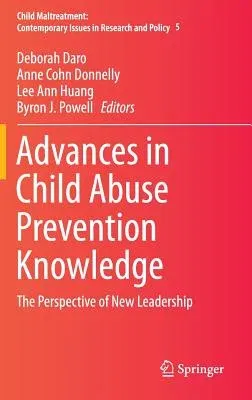This book addresses new avenues in child abuse prevention research that
will expand our capacity to protect children. These new avenues result
from the emergence of new research methods made possible through
technologic advances, an understanding of the benefits of
cross-disciplinary research and learning and the entrance of many young
scholars in the field. The book explores what these avenues produce in
terms of clarifying the complex problems that continue to limit our
progress in addressing child maltreatment and promoting optimal child
development. Specifically, the book showcases individual contributions
from emerging scholars and show how these scholars use the frameworks
and advanced methods to shape their work, apply their findings and
define their learning communities. The book highlights the benefits of
creating explicit and extended opportunities for researchers to network
across disciplines and areas of interest.
The primary authors are young scholars from universities across the U.S.
who have worked together as Fellows of the Doris Duke Fellowships for
the Promotion of Child Well-Being - seeking innovations to prevent child
abuse. Through this program, the Fellows have engaged in a robust
self-generating learning network designed to create the type of ongoing
professional linkages and decision-making style that fosters an
interdisciplinary and team planning approach to research design and
policy formation.

